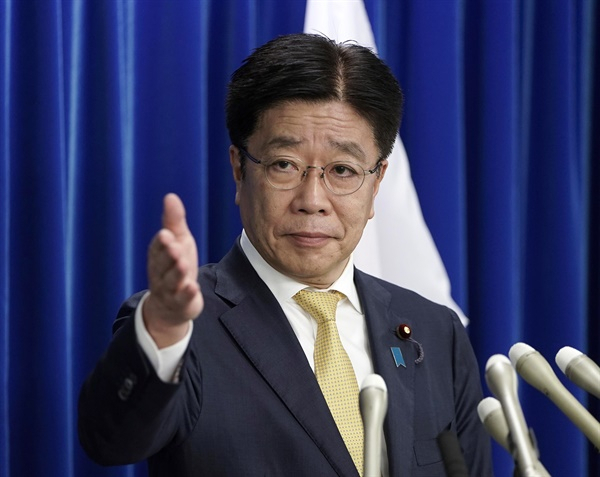日 “I have no intention of appealing”… There seems to be no delay in the appointment of the new ambassador to Korea
If Korea also agrees, it is possible to file a lawsuit at the International Court… “I will explain to America”
 viewer
viewer
As the Korean court ruled against the Japanese government on the 8th to compensate victims of Japanese military comfort women by 100 million won, the Japanese response is drawing attention in the future.
The Japanese government insisted on the principle of exemption from sovereignty that’the state does not become a defendant of foreign trials’, but the Seoul Central District Law acknowledged the Japanese government’s liability for compensation, saying that’crime against humanity’ does not constitute a sovereign exemption.
The Japanese government first made it clear that it has no plans to appeal. Japanese government spokesman Kato Katsunobu, at a regular press conference, asked, “Do you have any intention of appealing?” “So, the Japanese government has no intention of appealing,” he said.
Japan seems to have no intention of delaying the appointment of a new Japanese ambassador to Korea with a diplomatic pressure card. On this day, the Japanese government decided on the appointment of Israeli Ambassador Aiboshi Koichi, 61, as the new ambassador to the Republic of Korea at a resolution presided over by Prime Minister Yoshihide Suga. It was a greeting after the predecessor, Goji Tomita, was transferred to the US ambassador on the 25th of last month.
 viewer
viewer
Regarding the appointment of Ambassador Aibosi, Secretary Kato said, “Aibosi has worked at the embassy in Korea twice so far, and has built a strong pipe with Korea.” He said he was expecting to deal with it.
One of the plans in Japan is to seek judgment from the International Court of Justice on the judgment of a Korean court that has not recognized the sovereign immunity. The Asahi Shimbun delivered the news of the Korean court’s judgment on comfort women that day, citing a case in which an Italian court in the past ruled against the German government to reimburse its citizens who were forcibly mobilized by Nazi Germany and then lost at the International Court of Justice (ICJ).
In 2004, the Italian Supreme Court rejected Germany’s claim for sovereign immunity and ruled in compensation in a 2004 lawsuit in which a victim of Nazi German forced labor demanded compensation from the German government for damages, saying, “In case of international crimes, sovereign immunity does not apply.” However, in 2012, the ICJ judged that “the act of Nazi Germany at that time was a crime under international law, but it did not deprive you of sovereign immunity.” It was concluded that the Italian Supreme Court ruling was wrong. However, since the ICJ lawsuit requires the consent of the other country, it cannot be realized if Korea rejects it.
When asked about countermeasures through ICJ lawsuits or cooperation with foreign countries other than Korea, Minister Kato did not comment on the ICJ lawsuit and said, “The comfort women issue was finally and irreversibly resolved through the Japan-Korea (Korea-Japan) agreement in 2015.” While reconfirming, he said, “We will continue to provide necessary explanations for related countries.” This is interpreted with the intention to pressure Korea by actively explaining Japan’s position to the United States and other related countries.
/ Reporter Park Ye-na [email protected]
< 저작권자 ⓒ 서울경제, 무단 전재 및 재배포 금지 >
